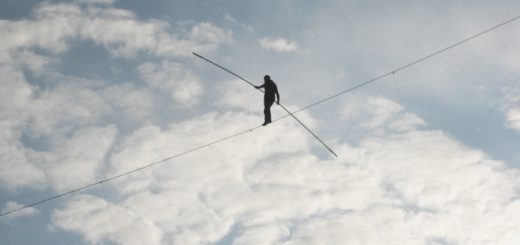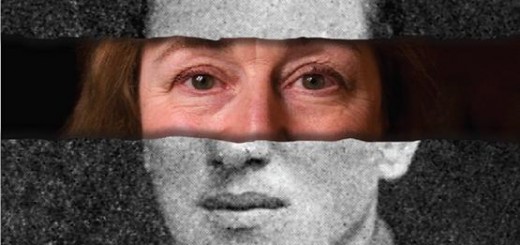Anti-Orthodox? What Anti-Orthodox?

Below is the “News and Analysis” feature from last week’s Ami Magazine, republished here with permission.
Anti-Orthodox? What Anti-Orthodox?
In the most recent edition of the New York Jewish Week, the paper’s editor and publisher, Gary Rosenblatt, took Ami Magazine and me to task for a “news and opinion” article that I penned in this space on July 27.
The news portion of my offering was about how the Jewish Week’s cover story the week after the murder of Leiby Kletzky, o”h, had focused on charges allegedly made against the Borough Park Shomrim; the report painted the community patrol group as out of control and not working well with police.
My Ami news piece quoted extensively and straightforwardly from the Jewish Week article, including its digression into the topic of renowned rabbinic authorities’ halachic decisions regarding the procedure for informing law enforcement authorities about suspected child abuse.
The analysis portion of my Ami offering pointed out that none of the innuendo about Shomrim in the Jewish Week article had been substantiated; all of it was based on anonymous sources. What was more, I noted further, the writer of the cover story, Hella Winston, has left a long Jewish Week paper trail of relentlessly negative writing about the charedi community; and has elsewhere expressed personal displeasure with its beliefs and practices—making her a less than responsible choice for the paper’s “charedi beat.” I continued with a broader critique of the Jewish Week’s “inordinate amount of criticism” aimed at charedim, and the “jaundiced eye” I and many others feel it brings to its coverage of things charedi.
In his column, titled “Is it anti-Orthodox to seek a safer community?”, Mr. Rosenblatt wrote that it is “maddening” when his paper is “labeled ‘anti-Orthodox’.”
“We generally choose not to respond to such charges,” the Jewish Week editor continued, “trusting that our readers can judge for themselves over time whether or not we are biased in our coverage. But such inflammatory rhetoric should not go unchallenged.”
And so challenge it he did. Citing other coverage in the same issue of the Jewish Week whose lead story focused on the Shomrim—like a piece by Jonathan Mark that movingly described his shiva call to the Kletzky family; and a media column by Ari Goldman that praised a charedi paper for its sensitive coverage of the Kletzky tragedy—Mr. Rosenblatt made the case that such columns disproved the charge that his newspaper is “a publication bent on ‘Orthodoxy bashing’.”
The “crux of the matter,” Mr. Rosenblatt continued, is “the role of a community newspaper.” The Jewish Week, he asserted, has “a duty to expose as well as a need to protect.”
The Jewish Week editor also cited two letters sent to Ami (apparently copied by their writers to Mr. Rosenblatt, as Ami only hit the newsstands hours later) by people who felt that the Jewish Week had treated its subject fairly and that I had overreacted to a story that, as one letter-writer put it, “had nothing to do with vilifying the charedi community.”
Finally, Mr. Rosenblatt invoked the time of Jewish year, just before Tisha B’Av, which, he noted, “commemorate[s] the destruction of the Temples in Jerusalem and [is] attributed by some sages to the belief that the Jews of that time were engaged in sinat chinam, or causeless hatred, one for the other.”
Writing with “a deep sense of irony and a heavy heart,” the Jewish Week editor imagined that “our critics no doubt ascribe such feelings to The Jewish Week.” But, he added, “We do not see it that way.”
ANALYSIS
Gary Rosenblatt finds it “maddening” when his paper is called “anti-Orthodox.” What others might find maddening is when a response to a critique… doesn’t respond to the critique.
My analysis in this space on July 27 made three clear and distinct charges:
1) Hella Winston’s cover story casting the Borough Park Shomrim in a highly unflattering light was based entirely on anonymous sources and speculation, and thus was, from a purely journalistic perspective, unworthy of publication.
2) The article’s abrupt digression into the halachic realm of the procedure for informing authorities about suspected pedophiles was, especially considering the current dearth of evidence that Leiby Kletzky’s killer is in fact a pedophile, “a gratuitous seizing of an opportunity (a heinous murder, no less) to try to present a halachic decision in a negative light.”
3) Ms. Winston, in a book and many articles in a variety of publications, has portrayed charedi society and beliefs as repugnant; and therefore the Jewish Week has been irresponsible to imagine that she can bring reportorial objectivity to happenings in the charedi world.
Pointedly, tellingly, Mr. Rosenblatt did not respond to any of those charges. He couldn’t have, as they are all unassailable truths.
What he chose to do instead was attempt to prove his paper’s good will by pointing to positive articles about the Kletzky tragedy by two columnists on its staff—two of the very people I was referring to in my July 27 analysis when I wrote that the paper’s “stable holds some fine, unbiased columnists.” But, as I continued, Jonathan Mark and Ari Goldman are columnists—excellent ones—but they are not employed by the Jewish Week as news reporters. What is more, and more important, no number of positive opinion pieces about charedim can excuse even one—not to mention myriad—misleadingly negative ones.
I don’t keep a file on such articles in the Jewish Week. But a sampling from recent years would include: an assertion by one of its columnists that “Some Orthodox label secular Jews Amalek and some extreme Orthodox use the same term for the Modern Orthodox”; a report about violent nationalist extremists in Israel featuring a large photograph of the Temple Mount in the background and a looming, ominous silhouette of a charedi man’s head in the foreground; the blatantly false assertion that a major charedi group “is opposed to both mandated reporting and finger printing, and background check legislation”; repeated portrayals of a non-Orthodox Jewish congregation as Orthodox (in order to trumpet certain “innovations” as halachically acceptable); and a demonstrably false characterization of a study about victimization of Orthodox Jewish women. There is more.
And there is also the disturbing but significant fact that, despite the abundance of top-notch writers in the contemporary charedi world today, the Jewish Week, which claims to serve and reflect the entire Jewish community, does not feature one regular charedi opinion columnist. A first-person column about the challenges and joys of intermarriage is a regular feature of the paper. A weekly—or even monthly—column from the perspective of uncompromising embrace of the entirety of the Jewish religious tradition is perpetually absent.
No, the issue is not whether it is “anti-Orthodox to seek a safer community.” Nor is it “the role of a community newspaper” or its “duty to expose.” The issue is, rather, a newspaper’s responsibility to operate with journalistic integrity and basic objectivity.
Mr. Rosenblatt’s assumption that critics of the Jewish Week see the paper as promoting baseless hatred is unfortunate, and mistaken. What those of us who are critical of the paper believe is that it harbors a bias, no more and no less. But a bias is a terrible thing to nurture.
What the Jewish Week’s editor and defenders would do well to consider is how great a service to the Jewish community and to Jewish unity—not to mention to journalistic integrity—it would have been had Jonathan Mark or Ari Goldman been assigned to see if there was any story to write about Shomrim. And Ms. Winston sent to the Kletzky shiva house.
© Ami Magazine 2011




Recent Comments